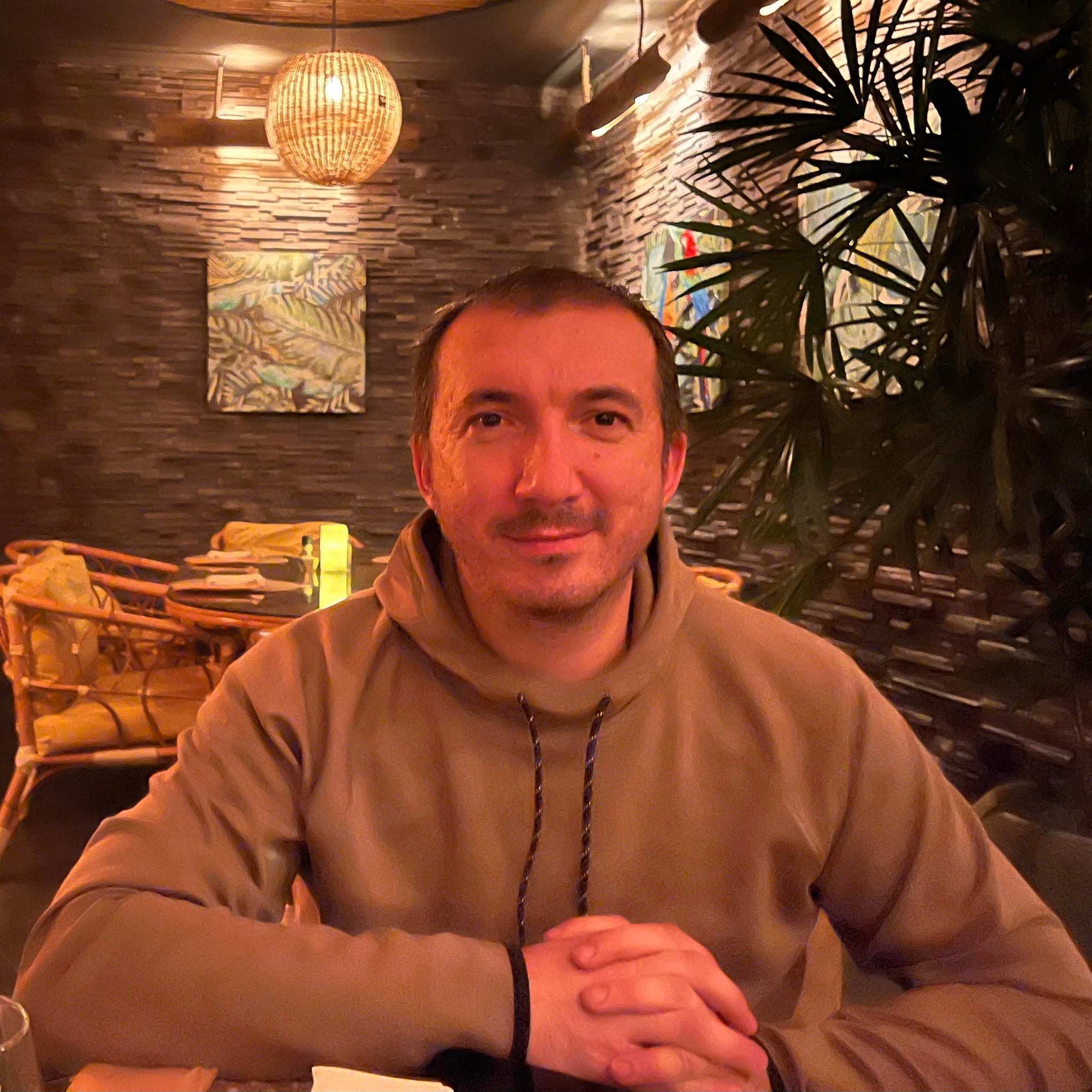
Akif Cogo
 Akif Cogo never planned to become the leader of a nonprofit organization with more than 70 regular volunteers and a multifaceted mission. He was simply an undergraduate history student at the University of Missouri-St. Louis (UMSL), working to complete his senior thesis.
Akif Cogo never planned to become the leader of a nonprofit organization with more than 70 regular volunteers and a multifaceted mission. He was simply an undergraduate history student at the University of Missouri-St. Louis (UMSL), working to complete his senior thesis.
Cogo’s roots in Bosnia-Herzegovina are deep. His family had held property in the small town of Zenica for several centuries, and it was a beautiful place to grow up, he says, surrounded by hills and rivers. His family survived the Bosnian War from 1992 to 1995, but they sought a safe haven in its aftermath, following Cogo’s uncle to St. Louis in 2001. Akif was just 17 years old.
Fast forward a decade, and he was collecting large quantities of data, research, and news articles about the St. Louis Bosnian community for his school project. In doing so, he came to the realization that this information was something to be shared, something that people should have access to. Hence, the website St. Louis Bosnians was born.
What started out as a depository for information quickly filled a vacuum for other needs. Today, the organization engages in diverse activities, mutually beneficial to both Bosnian-Americans and non-Bosnian residents of St. Louis, including educational programming, political advocacy work, and humanitarian relief, both locally and abroad.
Today, the nonprofit partners with a variety of educational institutions to offer presentations on myriad topics–for example, Bosnian religious life, the testimonies of genocide survivors, and reports on how local Bosnian-Americans are adjusting to life in the U.S. Other programming is geared toward the native Bosnian audience, such as a presentation by Dr. Mirha Avdagic on breast cancer prevention and other issues related to women’s wellness.
Cogo and his team of volunteers are also active in local and international politics. They work with St. Louis elected officials on issues as specific as placing multilingual speed bumps in Bosnian neighborhoods, while also making broader recommendations for electoral reforms in Bosnia-Herzegovina. "We need to remember that St. Louis Bosnians have mothers, fathers, sisters, brothers, over there who are greatly affected by policies proposed and supported by the Department of State here. As American citizens, as Bosnian-Americans, we can influence those, or we hope we can," Cogo says.
When it comes to humanitarian aid, St. Louis Bosnians chooses to fund ongoing, sustainable causes in lieu of providing stop-gap support. In that vein, the organization has donated tens of thousands of dollars in scholarships to students studying in the U.S. and in Bosnia-Herzegovina. Moreover, they partner with a Bosnian organization called Pomozi, meaning “Help,” to fund school lunches for Bosnian students with financial need. They have also remodeled schools and helped teachers obtain school supplies, both locally and abroad, and have assisted on a case-by-case basis with individual Bosnian-Americans living in St. Louis homeless shelters.
The organization has a far-reaching impact, but Cogo is humble about his role in making all these changes happen. His work with the nonprofit is a hobby, he says, noting that the community volunteers–from professional cooks to prolific writers to public speakers with the psychological strength to speak about their country’s traumatic history–are the heart of the organization. Its project-based structure encourages this grassroots approach. "Let's say someone pitches a project they would like to work on. If it aligns with our mission and vision, we will support it financially and logistically, but we expect them to take the lead," he explains.
Many of these projects are initiated online via social media on the organization’s Instagram, Facebook, Twitter, or Youtube accounts. Over the years, a team of seven volunteer social media managers have used these channels to accept offers for collaboration and reunite long-lost relatives, among other activities.
And yet, Cogo continues to break new ground when it comes to disseminating knowledge about St. Louis’ Bosnian-American community. Along with Patrick McCarthy, the director of the Medical Center Library and associate dean of university libraries at Saint Louis University, he is co-authoring the book Bosnia in St. Louis, Between Two Worlds, slated for publication in fall 2022. Cogo and McCarthy use an oral history approach to capture the evolution of the city’s Bosnian population, beginning in the 1850s and continuing through the present day.
Cogo is hopeful that the city of St. Louis will embrace and uplift the Afghan refugee community with the same spirit of inclusivity it demonstrated to his people. "We know how to make refugees feel welcome, how to ease them into a life here in the U.S., how to equip them with the skills to be successful,” he says. "I believe we really do have an opportunity to make St. Louis a hub for future Afghan-Americans."
He can speak to the American dream with some credibility, as someone who left Bosnia-Herzegovina due to war, only to find purposeful work, love, and a thriving expat community in St. Louis. (He is married to Amina Hodzic, radiology manager at Barnes-Jewish West County Hospital.)
Cogo believes St. Louis is a great place to find a healthy work-life balance and discover one’s personal dream: "I strongly believe the American dream is alive, but a lot of people need to search for that within themselves, to figure out what their dream is. St. Louis is an excellent place to do so."
